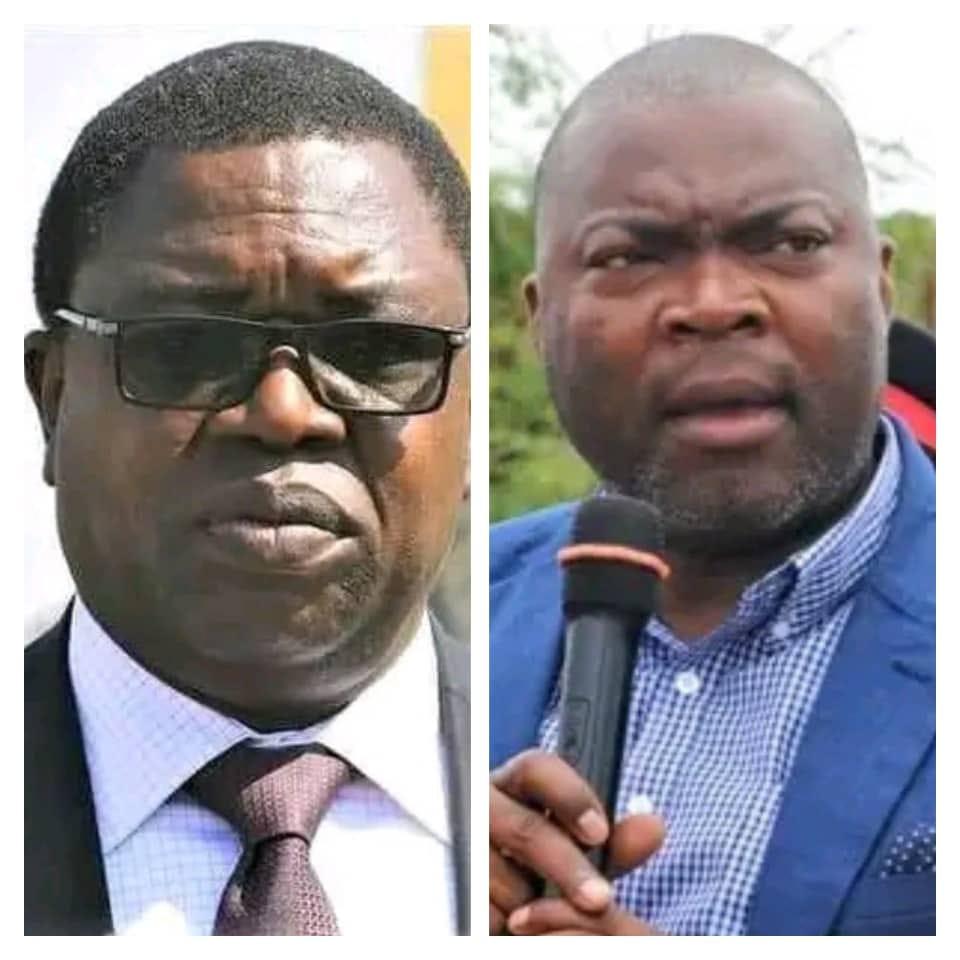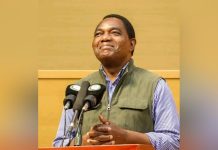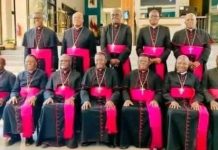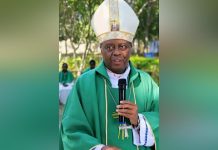Africa-Press – Zambia. THE Constitutional Court has directed that a member of parliament whose election has been nullified is not prevented by Article 72(4) of the Constitution from re-contesing.
Judge Palan Mulonda on behalf of Mungeni Mulenga, Matthew Chisunka and Judy Mulongoti said there is a lacuna in Article 72(2) regarding a vacancy occuring in parliament when an member of parliament’s election is nullified by the High Court and where there is no appeal and a nullification by the Constitutional Court.
However, Constitutional Court vice-president Professor Margaret Munalula in her dissenting judgement said the lacunae in Article 72 (h) does not stop the court from giving clarity on the matter or providing an interpretation declaring clause (4) redandunt.
She said the court had an opportunity to bring the matter to its conclusion by stating whether Joseph Malanji and Bowman Lusambo were disqualified in recontesting election in the current life of parliament as opposed to issuing a vague judgement.
This is in a matter where Malanji and Lusambo commenced a law suit against the State and the Electoral Commission of Zambia, seeking a determination on whether or not the decision of the electoral body dated August 24, 2022 was illegal, null and void.
They want the court to determine whether they are eligible to recontest the parliamentary by-elections slated for September 15, 2022. The two are also seeking a determination on whether fresh nominations should be conducted to allow them participate in the by-elections.
Lusambo and Malanji want the Constitutional Court to clarify what is meant by causing a vacancy in the National Assembly as stated in Article 72 of the Constitution.
Delivering judgement this afternoon, judge Mulonda agreed with the State that questions one to three were a preserve of the High Court as only question four was properly before the Constitutional Court.
He said Article 72 provides for when the office of member of parliament becomes vacant and a person who causes a vacancy in the National Assembly due to reasons specified under clause (2) a,b,c,d,g and h shall not, during the life of that parliament, be eligible to contest an election or hold public office.
“Article 72 (2) outlines instances in which the office of member of parliament becomes vacant. Article 72 (4) places a caveat on who can be allowed to contest an election following a vacancy created in clause (2),” judge Mulonda said.
“Perusal of the technical committee report on the draft constitution 2013 at page 285 reveals that the rationale of the said provision was that members of parliament should not cross the floor in order to prevent unnecessary by-elections, wastage of resources and to strengthen democracy. It is silent on the issue of a vacancy arising from a nullification of an election by the Court.” He said the two words nullify and disqualify cannot be used interchangeably as they mean different things.
“The disqualification which is covered under Article 72(2)(h) is distinct from the nullification of an election by the High Court following the determination of an election petition or subsequently by the Constitutional Court on appeal. When Article 72 (2)(h) is read together with Article 70 (2) and Article 72 (4) the implications of qualification are materially different from nullification of an election,” judge Mulonda explained.
“Article 72 (2)(h) provides for one instance where a vacancy occurs in the National Assembly through a disqualification of a member of parliament by the decision of the Constitutional Court as distinct from the decision of this Court on appeal pursuant to Article 73 (3) read with Article 128(1)(d) of the Constitution.”
Judge Mulonda said while Article 72 (2) of the Constitution provides for instances where the office of member of parliament becomes vacant, it does not provide for a vacancy triggered by the nullification of an election by the High Court when there is no appeal, neither does it provide for the occurrence of a vacancy in the National Assembly following the decision of the Constitutional Court to uphold the nullification of an election by the High Court, or by the reversal of a decision of the High Court not to nullify the election of a member of parliament.
“There was a lacuna in Article 72(2) with respect to a vacancy occuring following the nullification of an election by the High Court where there is no appeal and nullification by the Constitutional Court where there is an appeal. We however make it clear and restate our position that Article 72 (2)(h) refers to a vacancy created in the National Assembly through a disqualification of a member of parliament by the decision of the Constitutional Court and does not extend to the decision nullifying an election,” said the majority.
“Article 72 (4) does not apply to all the instances outlined in Article 72 (2) which clearly specifies which situations cause a vacancy that would disqualify a person from contesting an election or holding public office. In conclusion, we find that Article 72 (4) has specified which categories of persons cannot contest an election and these are specified in Article 72(2) a,b,c,d,g and h. These persons do not include those members whose seats fell vacant by virtue of a nullification of an election.”
And in her opposing view, judge Munalula said ; “The lacunae in Article 72(h) does not warrant this court doing nothing or providing an interpretation declaring clause (4) redundant. That is not the way constitutional issues ought to be interpreted, which is old fashioned. The meaning of causing a vacancy in the National Assembly as stated by Article 72 is that it bars a person who has caused a vacancy by specified circumstances from contesting an election.”
The High Court will tomorrow hear the judicial review application by Malanji and Lusambo challenging ECZ’s decision to reject their nomination for reasons that their election in the August 12, 2021 general election was declared null and void.
For More News And Analysis About Zambia Follow Africa-Press







